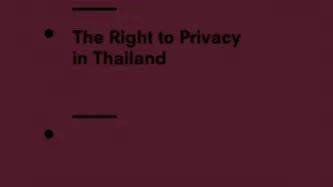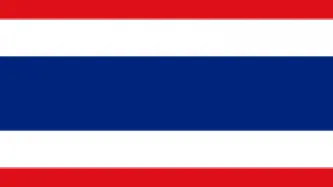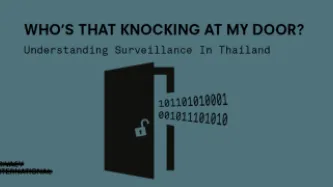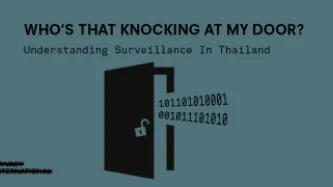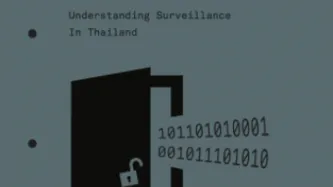Search
Content type: Examples
The central Thailand province of Chachoengsao has launched Mor Channa, a COVID-19 tracking mobile phone app, to help individuals assess whether they are in a high-risk area for COVID-19. Energy Absolute PLC, one of the companies that helped develop the app, believes that the app's tracking system will provide real time data to the Ministry of Health's Department of Disease Control for analysis, and will keep people out of high-risk areas (indicated on the app's map in red) and therefore help…
Content type: Examples
The Thai Tech Startup Association, Department of Disease Control (Ministry of Public Health), Digital Economy Promotion Agency (Ministry of Digital Economy and Society), and National Innovation Agency have developed a questionnaire on an app which as adverised on the Thai Tech Startup Associaiton the questionnaire is designed for people to self-assess if they are in high risk or not. Developed by the Department of Diseases the questionnaire asks a variety of questions related to symptoms…
Content type: Examples
Thailand's National Broadcasting and Telecommunication Commission (NBTC) provided a SIM card to every foreigner and Thai who had travelled from countries that have have been designated as "high risk" for COVID-19 infections (at the time, China, Hong Kong, South Korea, Italy, and Macau). According to NBTC secretary-general Thakorn Tanthasit, the AoT Airports' new application had more than 7,000 downloads in its first five days. The sim card will be used together with the AoT Airports application…
Content type: Press release
17 November 2015
A new Privacy International investigation reveals Microsoft's complicity in a serious case of Government persecution in Thailand. It is a shocking example of how Western companies not only work with governments that fall considerably short of international human rights standards, but can actually facilitate abuses of human rights.
In early 2014, a Thai stockbroker, Katha Pachachirayapong, was accused by the Government of spreading rumours on the ill-health of King…
Content type: Advocacy
Privacy International's submission on the right to privacy in Thailand, Human Rights Committee, 119th Session.
In our assessment to the Committee, national legislation governing surveillance is inadequate, unclear as to the powers, scope and capacity of state surveillance activities and thus it falls short of the required human rights standards to safeguard individuals from unlawful interference to the right to privacy.
Content type: State of Privacy
Introduction
Acknowledgment
The State of Surveillance in Thailand is the result of a collaboration by Privacy International and Thai Netizen Network.
Right to Privacy
The constitution
Thailand experienced a coup d'etat in May 2014. According to Mishari Muqbil and Arthit Suriyawongkul, “their [the junta's] modus operandi seems to be the direct command of ministries and semi-governmental organisations to carry out tasks irrespective of existing legislation.”
Following…
Content type: News & Analysis
In our latest report “Who’s that knocking at my door? Understanding surveillance in Thailand”, we highlighted various methods of surveillance that the Thai Government employs. Included in these methods was the finding that Microsoft was the only technology company which by default trusts the Thai Government’s root certificate. Root certificates ensure the validity of a website, and protect users from being tricked into visiting a fake, insecure website. Most technology companies including Apple…
Content type: News & Analysis
An investigation released by Privacy International this week reveals the Facebook shut-down Thailand experienced in May 2014, at the height of the military coup, may have had more to do with attempting to surveil online communications, rather than censoring Facebook users. This revelation indicates there could be more to other previous internet shutdowns that have happened during times of political unrest.
In May 2014, following months of protest, the Thai military overthrew the…
Content type: Report
This investigation looks at how surveillance is being conducted in Thailand. The first part of the investigation focuses on the ties between telecommunication companies and the state, and the second part of the investigation focuses on attacks conducted in order to attempt to circumvent encryption.
